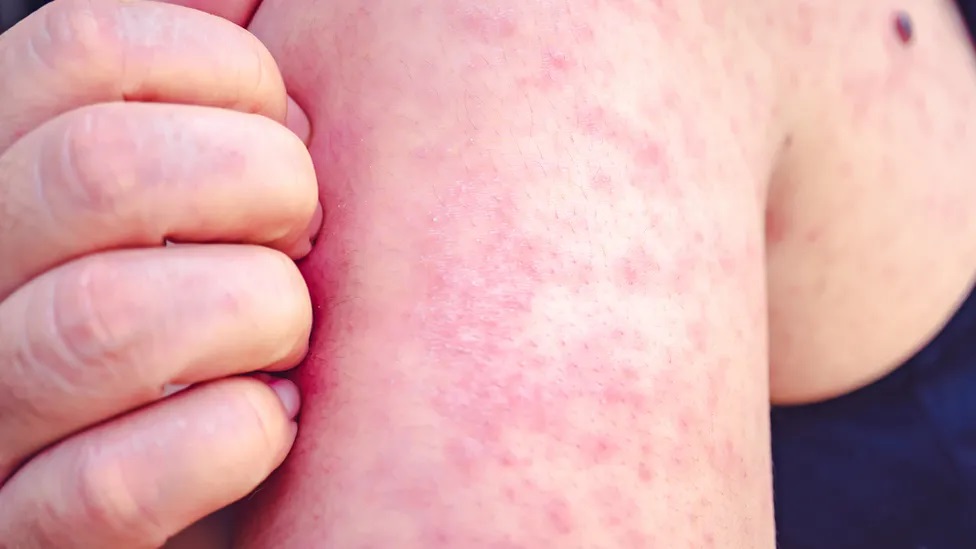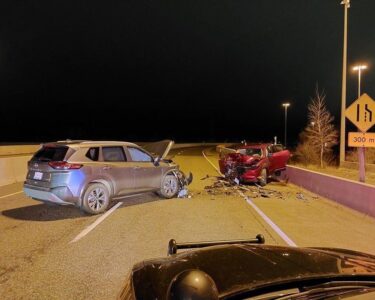An adult who contracted measles has died in hospital in Ireland, the country’s Health Service Executive (HSE) has said.
It is the first confirmed measles case in Ireland this year.
There were four measles cases in 2023, two in 2022, none in 2021, and five in 2020, with no deaths reported in any of those years, according to the HSE.
It comes as health officials across Europe and the UK warn of rising cases amid falling vaccination rates.
The adult died in a hospital in the Dublin and Midlands health region, which covers the Leinster province. The HSE’s Health Protection Surveillance Centre (HPSC) has been notified.
Public health teams and the Measles National Incident Management Team (IMT) said they were “taking all necessary public health actions in relation to the case”.
Ireland’s Chief Medical Officer Professor Breda Smyth said she was “very concerned” there was a “high risk” of a measles outbreak in the country and urged people to take up the measles, mumps and rubella (MMR) vaccine.
In a video shared on social media on Thursday, which was originally posted last month, Prof Smyth said vaccination levels had fallen below 90% nationally, and below 80% in some Irish counties.
About 95% of the population needed to be vaccinated in order to prevent the disease from spreading, she said.
Since 2020, most confirmed cases of measles in Ireland reported recent travel to countries where outbreaks were ongoing, the HPSC said.
- Why are measles cases rising and what is the MMR vaccine?
- Alarming 45-fold rise in measles in Europe – WHO
Measles is a highly contagious disease, which is spread by coughs and sneezes and can be serious at any age.
It often starts with a high fever and a rash, which normally clears up within 10 days – but complications can include pneumonia, meningitis, blindness and seizures.
There was a nearly 45-fold increase in measles cases in Europe last year, according to the World Health Organization (WHO).
Some 42,200 people were infected in 2023, compared to 941 during the whole of 2022.
The MMR vaccine is given in two doses – the first around the age of one and the second when a child is about three years and four months old.
The WHO believes the rise in cases is a result of fewer children being vaccinated against the disease during the Covid-19 pandemic.
Vaccination rates for the first dose of the MMR vaccine slipped from 96% in 2019 to 93% in 2022 across Europe. Uptake of the second dose fell from 92% to 91% over the same period.
That seemingly small drop in vaccination take-up means more than 1.8 million children in Europe missed a measles vaccination during those two years.
“Vaccination is the only way to protect children from this potentially dangerous disease,” Dr Hans Kluge, regional director at the WHO, said in December.
Suspected cases of the disease have also been on the rise in England.






